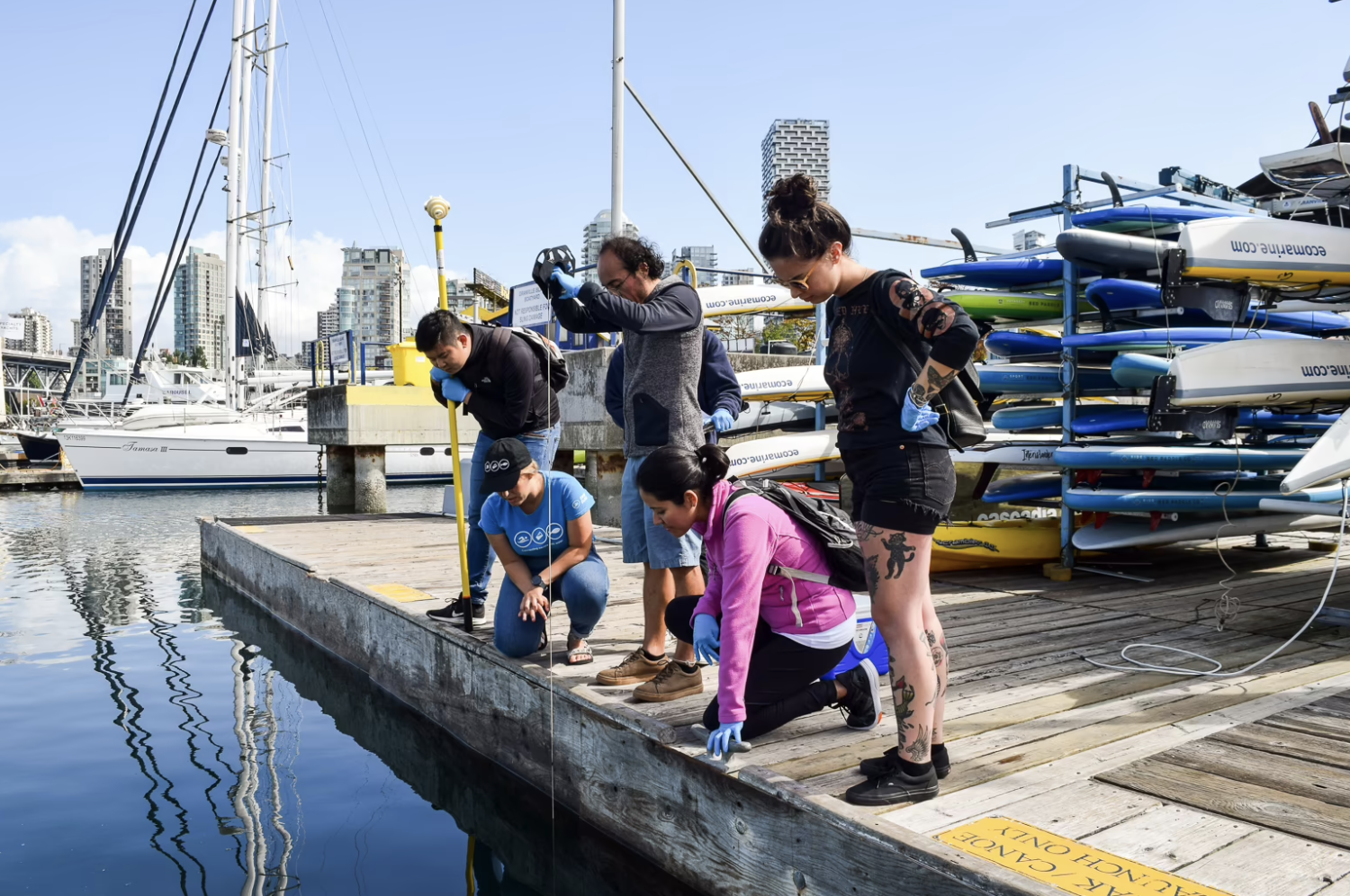
Recreational Water Quality Monitoring Toolkit
If you’re looking to safeguard the water bodies that matter to you, this is where to start.
Introduction to the Toolkit
The toolkit contains free resources for starting a water monitoring program that encompasses the goals of your community and site.
Modular Toolkit Format
This toolkit is structured in a modular format, so that your team can decide what you would like to monitor, based on your goals for each monitoring site. Continue below to view the module options.
Base Module: Bacterial Water Monitoring
Add-on Modules: Environmental Observations
Water Monitoring Toolkit
STEP 1
Find a suitable site to monitor.
The first thing you’ll want to do is choose a monitoring location and answer the question why do I want to monitor the water?
Complete the ‘site suitability’ research document to know if your site is a good fit with this program.
Download the ‘Site Suitability’ Research Document
STEP 2
Create a monitoring Plan for your program.
Behind every great monitoring program is a great monitoring program plan. Once you know where you’d like to start monitoring, you can download our monitoring plan workbook and start filling it out to help address the who, what, where, when, and whys of your program. This document will have to be completed iteratively.
Download the Monitoring Plan Design Workbook
Step 3: Enter the Base Module
Bacterial Water Monitoring
Recreational Water Monitoring for E. coli
To understand where and when it is safe to recreate is to understand the E. coli levels in the water. Follow this guide to set up recreational water quality monitoring at your monitoring site, by montoring E. coli.
Step 4 (optional): Enter the Add-On Modules
Environmental Observations
An add-on module is any additional monitoring that creates a more holistic understanding of your site. These add-on modules should be chosen based on your goals for your monitoring site. There is no limit to the number of add-ons chosen.
-

Litter Monitoring
Is there a lot of litter at your site? Does the site lack waste disposal infrastructure? Perhaps you want to add on the litter monitoring module. This module outlines the purpose, objectives and steps to monitoring litter. It breaks it down further by categorizing litter observations into whether they are sewage related or non-sewage related.
-

Wildlife Monitoring
Is your site flourishing with wildlife presence? is there a certain endangered species present? Consider adding on the wildlife monitoring module. This module outlines the purpose, objectives and steps to monitoring wildlife at the site. You will notice that there are specific categories as well as the option to collect observations on an app or through a paper format.
-

Water Rangers
Are there physical/ chemical water quality parameters that you are curious about for your site? The water rangers module outlines steps for collecting water parameters such as pH, dissolved oxygen, conductivity and more. Water rangers is also a great educational tool, if you are engaging with community members in water literacy activites.
Other Resources from our Partners
-
The goal of the Lake Partner Program is to better understand and protect the quality of Ontario’s inland lakes by involving citizens in a volunteer-based water quality monitoring program. Follow this link to learn more or volunteer with them!





